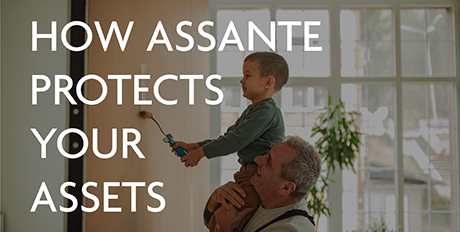The importance of including your pets in your estate and incapacity planning
Jul 24, 2025

Are you a pet parent – whether to a furry friend, feathered companion or another beloved animal? No matter if your companion is a cat, dog, bird, horse or exotic animal, it is important to have a plan in place to ensure they are cared for in the event you are no longer able to do so or upon your death. This is something every pet owner should read, to protect their special family member.
While many pet owners view their pets as family members – and treat them as such (I know I do – my cat, Ozzy, lives like royalty), the legal reality is quite different. Under laws in each province, pets are treated as assets, not family. So, to ensure your pet is properly taken care of in such an event, it is important to include them in part of your incapacity and estate planning.
Incapacity planning
To ensure your pet is properly cared for in the event you become incapable, include instructions in your enduring or continuing power of attorney (or in your protection mandate if you live in Quebec). This is the document where your chosen representative is authorized to make decisions regarding your property, so you will want to not only authorize your representative to expend funds to care for your pet but include the level of care your pet is to receive and who you want your representative to have care for your pet.
Estate planning
It is important to address the possibility that your pet may outlive you by including instructions in your will, setting out to whom your pet is to be gifted and any financial provisions you wish to make to help defray the costs of caring for your pet. You could direct a lump sum to be paid to the individual who will be caring for your pet or you can set up a trust with money being paid to your pet’s caregiver in accordance with the trust’s provisions. As both options have positive aspects and drawbacks, it is important to discuss with your legal advisor the best way to provide for your pet in your specific situation. Additionally, you should speak to the person you wish to give your pet to in advance to ensure they will accept the responsibility of caring for your pet. If the person you choose is unable to act when called upon, you should also select a back-up person to care for your pet.
Whatever you decide, it is important to ensure your wishes are accurately set out in your will, to avoid uncertainty and possible litigation.
What if I don’t have anyone whom I trust to appropriately care for my pet?
If you don’t have anyone you trust who is willing to care for your pet in the event of your incapacity or death, there are organizations that offer shelter and care for pets in your community. Some organizations may even have a “Pet Survivor Care Program,” where an agreement is entered into with the organization offering such a service that they will find a new home for your pet through their network, provided a donation is made to the organization. If this is the route you decide to choose, plan in advance, contact the organization and complete the necessary documentation, as well as include your instructions in your power of attorney and your will.
Regardless of the instructions your planning contains, it is important to carry a card in your wallet with your emergency contact information, that way, if something happens to you, your contact will be notified and will be able to assist in ensuring your pet is looked after right away.
I would like to extend a special thank you to my colleague, Magali Dussault-Brodeur, wealth planning consultant at CI Assante Private Client, for her invaluable assistance and unwavering support in preparing each blog.
About the Author

Valerie Markidis
As a Wealth Planning Consultant with CI Assante Private Client's Wealth Planning Group, Valerie works closely with our team to provide solutions for our clients in the intergenerational transfer of wealth, with a focus on estate planning. Valerie joined CI Assante in 2022, bringing 14 years of experience at two major trust companies, where she held national responsibility for Wills and actively supported advisors across Canada with questions and interpretations related to Wills, Powers of Attorney and Trusts.
Prior to her tenure with the trust companies, Valerie worked in private practice, where wills and estates were some of her key focus areas. She is lawyer with a Bachelor of Law degree from Osgoode Hall Law School and an Honours BA from Queen’s University.



